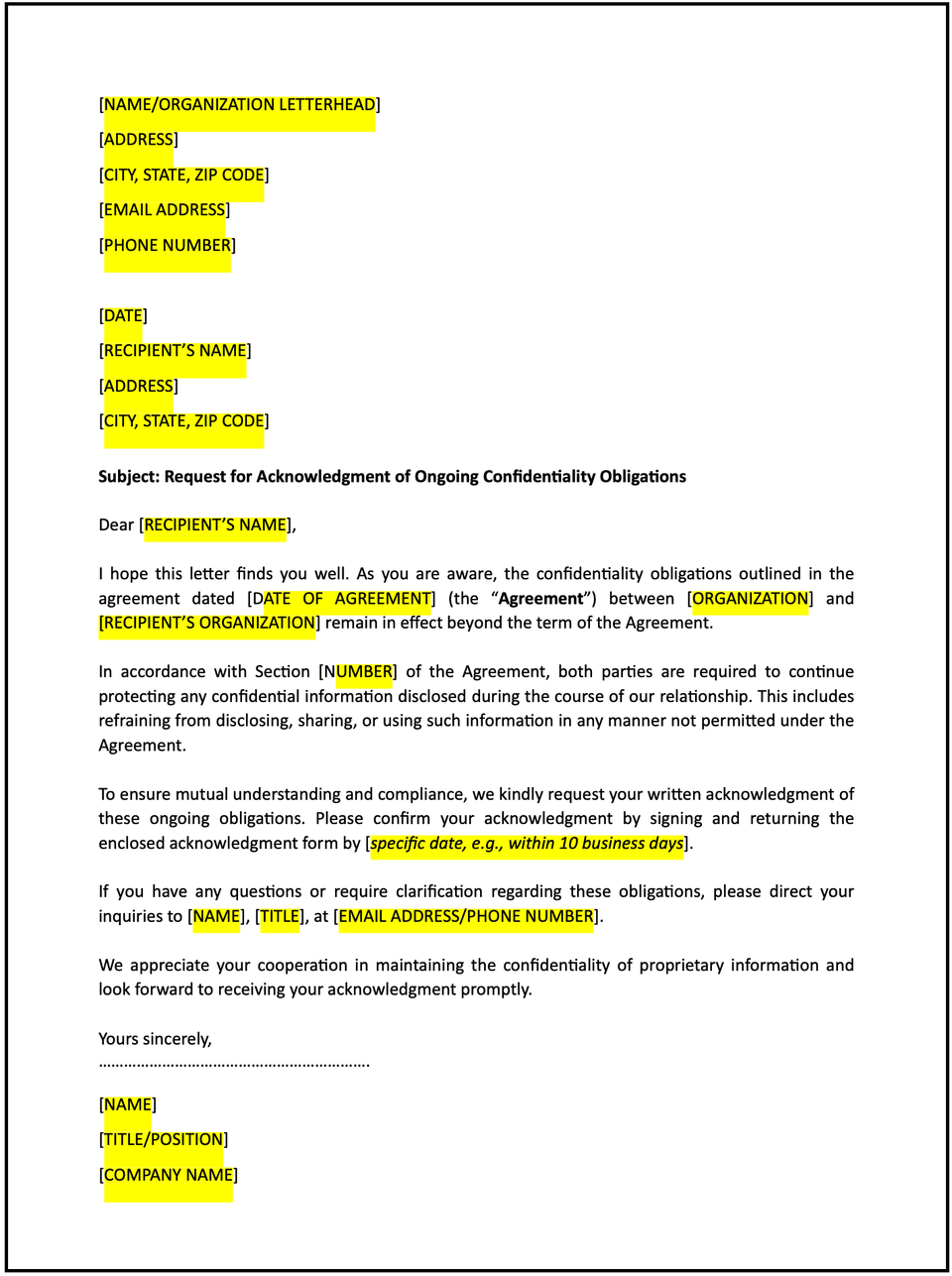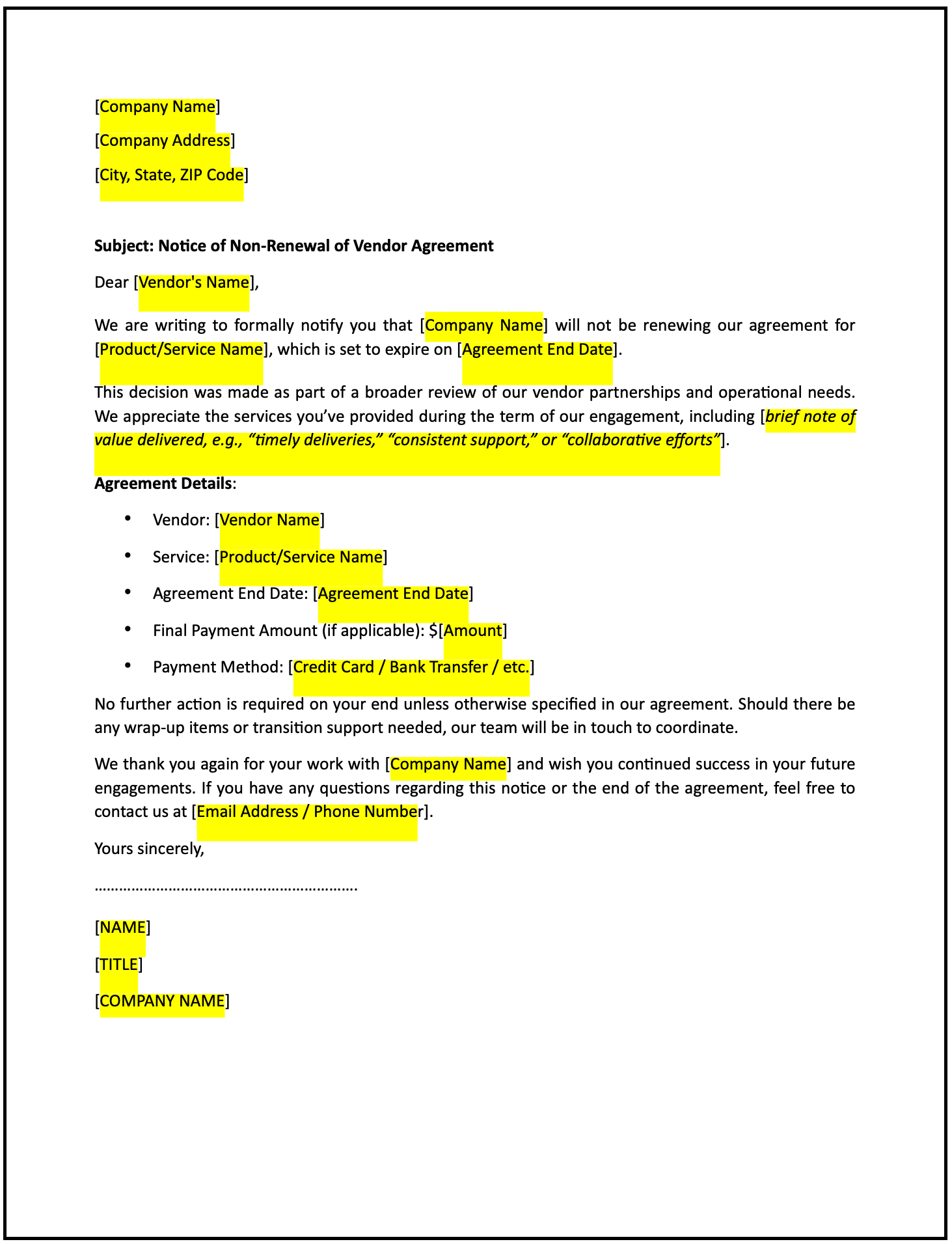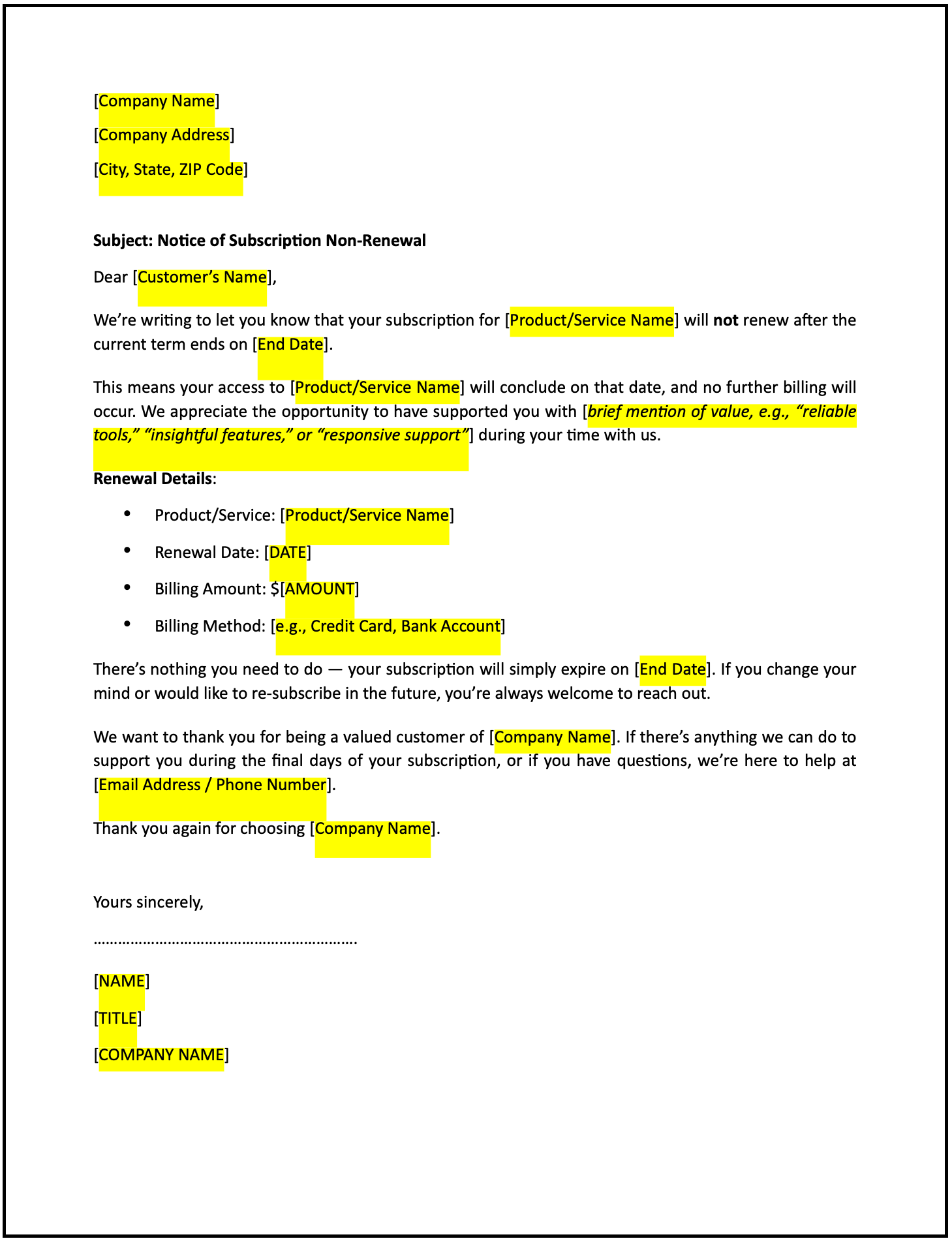Ongoing confidentiality acknowledgment request letter: Free template

Ongoing confidentiality acknowledgment request letter
An ongoing confidentiality acknowledgment request letter is a formal communication used to confirm that confidentiality obligations continue even after a contract or agreement has ended. These obligations are often outlined in a confidentiality agreement (NDA) or in the confidentiality clauses of a broader contract, and they typically survive termination or expiration.
This letter serves to remind the recipient of their continuing responsibilities and to formally request acknowledgment that they understand and agree to uphold those obligations. It is a proactive step toward protecting sensitive business information, preventing inadvertent disclosures, and reinforcing mutual trust.
How to use this ongoing confidentiality acknowledgment request letter
- Open with an introduction: Address the recipient respectfully and reference the original agreement, including the effective date, agreement title, and the parties involved.
- State the purpose: Explain that the purpose of the letter is to confirm that confidentiality obligations remain in force beyond the term of the agreement.
- Reference relevant provisions: Identify the specific clause(s) in the agreement that outline the duration and scope of post-agreement confidentiality obligations.
- Emphasize importance: Reiterate why confidentiality remains essential, such as the protection of proprietary information, intellectual property, or business-sensitive data.
- Request acknowledgment: Ask the recipient to confirm in writing that they understand and accept the continuing obligations. You may request that they sign and return a copy of the letter.
- Offer assistance: Invite the recipient to reach out if they have any questions or need clarification regarding the terms.
- Maintain a professional tone: Keep the language respectful and solution-oriented, reinforcing the shared interest in maintaining good faith and compliance.
Benefits of using an ongoing confidentiality acknowledgment request letter
- Promotes clarity: Reinforces the recipient’s continuing responsibilities and avoids confusion about the agreement’s scope.
- Reflects professionalism: Demonstrates attention to contractual details and a commitment to safeguarding sensitive information.
- Encourages accountability: Helps ensure the other party understands and accepts their post-agreement duties.
- Builds trust: Strengthens the relationship through clear and transparent communication.
- Supports legal protection: Provides written evidence of continued obligation, which may be useful in future disputes or audits.
Tips for writing an effective ongoing confidentiality acknowledgment request letter
- Be specific: Refer to the original agreement and the exact clauses that govern post-agreement confidentiality.
- Use professional language: Maintain a clear, courteous tone that encourages collaboration.
- Provide context: Explain why continuing confidentiality is necessary, especially if sensitive materials were shared during the relationship.
- Highlight mutual benefits: Point out that protecting confidential information supports the interests and reputations of both parties.
- Include actionable steps: Provide clear instructions for acknowledgment, such as signing and returning the letter or replying via email.
- Keep it concise: Focus on the core message while maintaining a professional and structured format.
Frequently asked questions (FAQs)
Q: What details should I include in this letter?
A: Include references to the original agreement, the relevant confidentiality clauses, and a clear request for written acknowledgment of continuing obligations.
Q: Should I personalize the letter?
A: Yes. Addressing the recipient by name and referencing the specific agreement demonstrates professionalism and clarity.
Q: Who typically sends this letter?
A: Legal teams, business owners, compliance officers, or account managers handling contract closeout processes.
Q: How formal should this letter be?
A: The letter should be respectful and businesslike, reflecting the seriousness of ongoing confidentiality obligations.
Q: When should this letter be sent?
A: Ideally, send the letter shortly after the agreement ends, during the wind-down or offboarding period.
Q: Can this letter include reminders about specific types of confidential information?
A: Yes. You may reference categories such as trade secrets, client data, internal strategies, or technical documentation to reinforce what remains protected.
Q: Is acknowledgment from the recipient required?
A: Yes. A written acknowledgment helps confirm the recipient’s understanding and provides documentation of your request.
This article contains general legal information and does not contain legal advice. Cobrief is not a law firm or a substitute for an attorney or law firm. The law is complex and changes often. For legal advice, please ask a lawyer.


